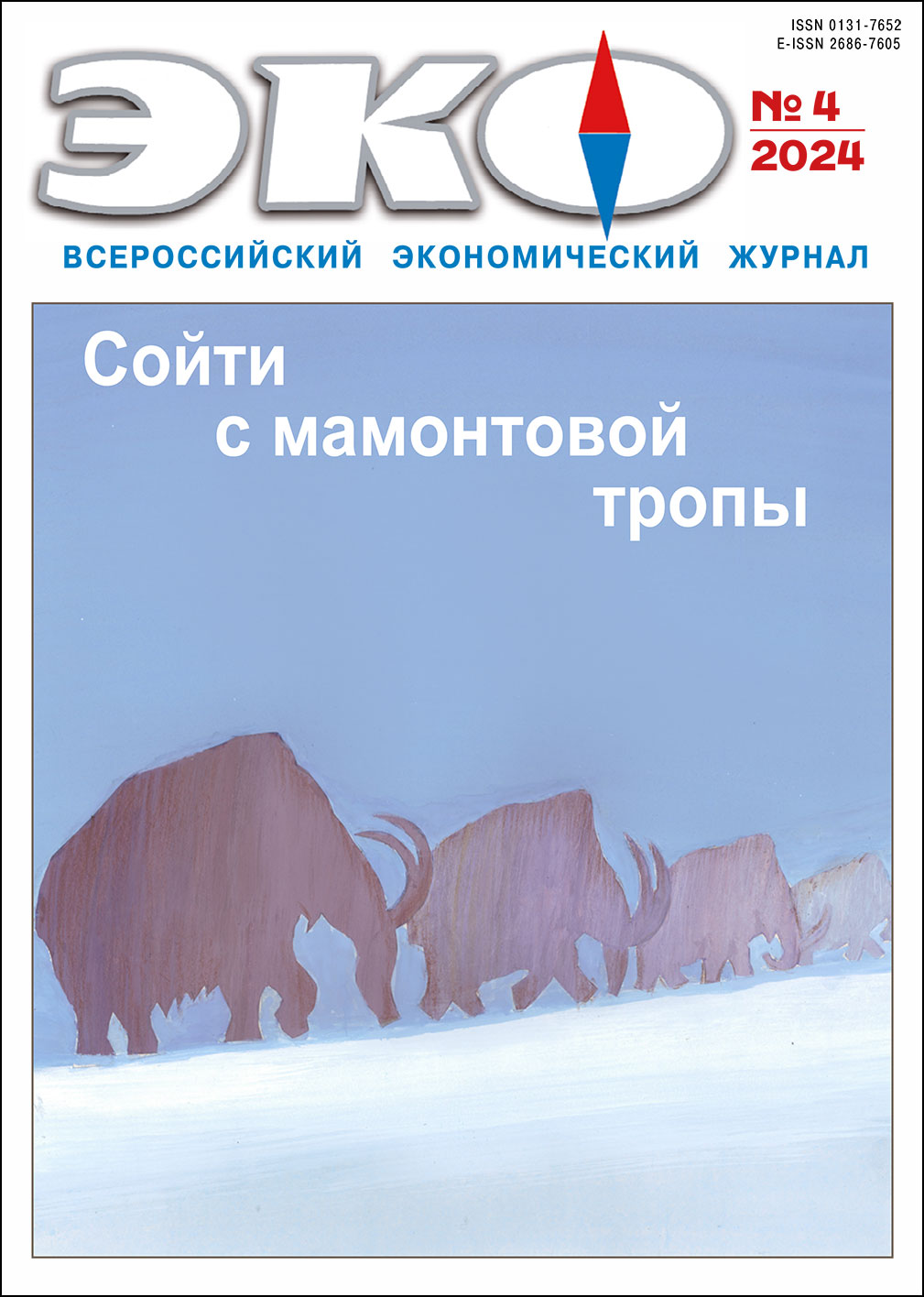DEVELOPMENT OF SCIENCE AND EDUCATION
How to Determine the Efficiency of a University Scientific and Educational Cluster: Case of IRNITU, Siberian School of Geosciences
Published 2024-08-12
Keywords
- scientific and educational cluster; university cluster; engineering education; stakeholder theory; students; higher education
How to Cite
1.
Kornyakov М, Krasikova Т, Parshin А, Shevchenko А. How to Determine the Efficiency of a University Scientific and Educational Cluster: Case of IRNITU, Siberian School of Geosciences. ECO [Internet]. 2024 Aug. 12 [cited 2026 Feb. 28];54(4):222-4. Available from: https://ecotrends.ru/index.php/eco/article/view/4768
Abstract
The paper considers the problem of assessing the performance of scientific and educational cluster. The authors illustrate the advantages of the approach based on the stakeholder theory in managing the university cluster through the example of the Siberian School of Geosciences. The study identifies the stakeholders of the school, shows the differences in their interests and requirements in comparison with those of a more traditional educational organization – the Institute of Subsoil Use of IRNITU, and proposes key criteria and a list of indicators to assess the effectiveness of the school.References
- Аржанухин С.В., Макович Г.В. Модели поведения стейкхолдеров университета в процессе цифровой трансформации интеллектуального капитала вуза // Human Progress. 2021. Т. 7. № 3. С. 3–15. DOI 10.34709/IM.173.3. EDN EQBUKE.
- Вагнер А.Р., Воронин А.В. Как будут развиваться отношения университетов и стейкхолдеров? // Университетское управление: практика и анализ. 2022. Т. 26. № 3. С. 4–9. EDN ZOXVIH.
- Горяева И.А. Стейкхолдер-менеджмент как фактор развития высшего учебного заведения // Вестник университета. 2019. № 3. С. 11–17. https://doi.org/10.26425/1816–4277–2019–3–11–17
- Екшикеев Т.К. Стейкхолдеры рынка образовательных услуг // Сибирский торгово-экономический журнал. 2009. № 9. С. 106–109. EDN NCKKVD.
- Клемешев А., Кудряшова Е.В., Сорокин С.Э. Стейкхолдерский подход в реализации «третьей миссии» университетов // Балтийский регион. 2019. № 4. С. 114–165.
- Красикова Т.Ю. Оценка эффективности инвестиций в инновационной научно-образовательный кластер высшего учебного заведения: специальность 08.00.05 «Экономика и управление народным хозяйством»: дисс. на соиск. уч. степ. канд. экон. н. Иркутск, 2013. 155 с.
- Кривых С.В. Кластерный подход в профессиональном образовании // Академия профессионального образования. 2014. № 3–4. С. 7–13.
- Осечкина, Л.И. Кластерный подход как условие повышения эффективности деятельности вуза // Высшее образование в России. 2012. № 8–9. С. 73–76.
- Тихонова А. Взаимодействие со стейкхолдерами как фактор повышения эффективности деятельности вузов // Creative Economy. 2017. DOI: 11. 1315. 10.18334/ce.11.12.38680
- Фроловская М.Н. Становление профессионального образа мира педагога на основе кластерного подхода // Инновационные технологии в науке и образовании: сб. статей II МНПК, Пенза, 23 янв. 2017 г. / МЦНС «Наука и Просвещение»; под общ. ред. Г.Ю. Гуляева [и др.]. Пенза, 2017. С. 210–212.
- Щербинина Г.С., Воронская И.Г. Внешние стейкхолдеры: анализ работы университетской библиотеки // Библиотеки вузов Урала: проблемы и опыт работы. 2013. № 12. С. 119–127.
- Choi, Seungchan (2019). Identifying indicators of university autonomy according to stakeholders’ interests. Tertiary education and management. No. 25 Pp. 17–29.
- Leisyte, Liudvika, and Westerheijden Don F. (2014). Stakeholders and quality assurance in higher education. in Drivers and barriers to achieving quality in higher education. Brill Print Publication. Pp. 83–97.
- Zaharia, R.M., Stancu, A., & Diaconu, M. (2010). University social responsibility and stakeholders` influence. Transformations in Business & Economics, Vol. 9. No. 1 (19). Pp. 434–447.
- Wilson, J. P., Dyer, R., & Cantore, S. (2023). Universities and stakeholders: An historical organizational study of evolution and change towards a multi-helix model. Industry and Higher Education. No. 38 (2). Pp.124–135. DOI: 10.1177/09504222231175425

